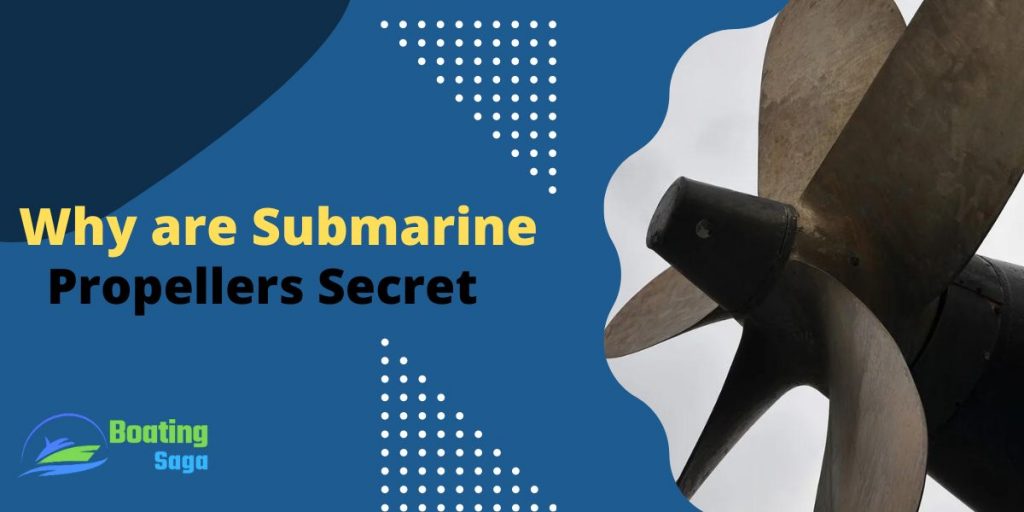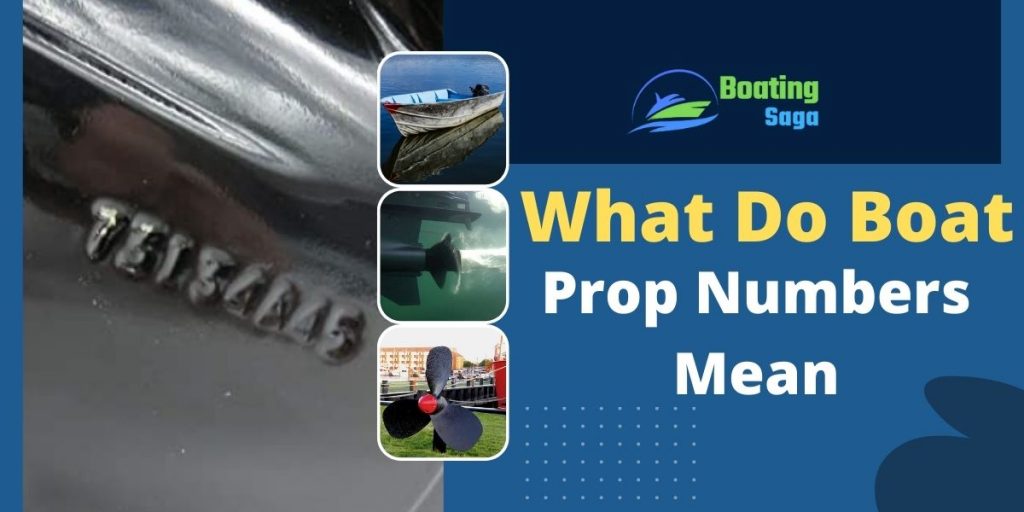
When you are looking at a boat propeller, you will see a number like 13.5×17 on it. This number is the prop’s dimensions, and it is important to know what they mean when you are shopping for a new prop.
What do boat prop numbers mean?
The size in the first number is the diameter of the prop. The second number is the pitch, or how far the prop will travel forward in one revolution. So, a prop with a dimension of 13.5×17 would have a diameter of 13.5 inches and would travel forward 17 inches with each rotation.
The dimension and pitch of your prop can affect how your boat performs. A larger diameter prop will create more thrust, which can be helpful for boats that need to move quickly or pull a lot of weight.
What Do the Numbers Mean and How to Read it Perfectly?
There are a few things that you need to understand about boat prop number before you can start reading it perfectly. The first is what each number means. The second is how to read the numbers correctly. And the third is what the different number combinations represent.
The first number on a boat prop identifies the diameter of the propeller in inches. So, a prop with the number “10” would have a diameter of 10 inches. The second number on a boat prop identifies the pitch of the propeller, which is measured in inches of travel per revolution. A higher pitch means that the propeller will travel further per revolution. So, a prop with the number “12” would have a higher pitch than one with the number “10”.
To read a boat prop number correctly, you need to combine both numbers together.
How Do They Affect Boat’s Performance?
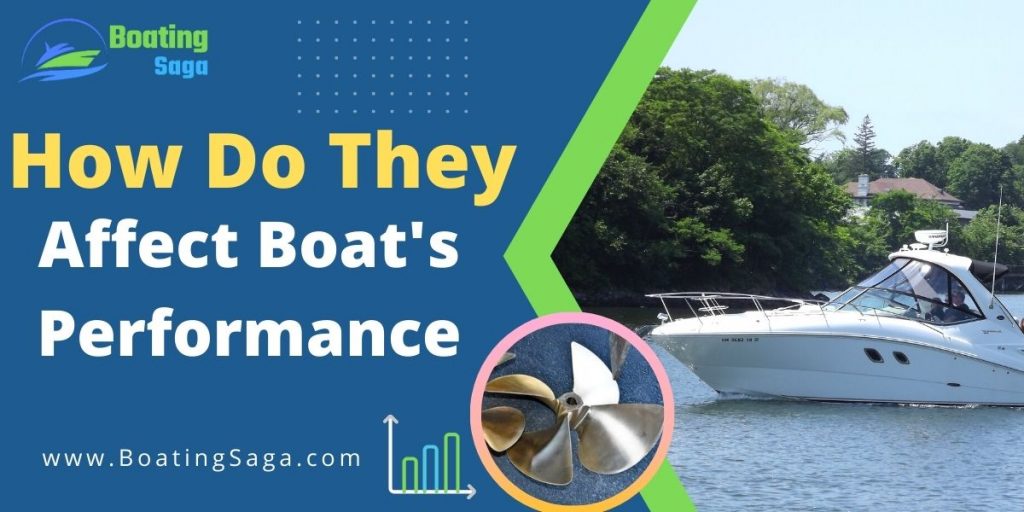
When you are looking to buy a boat, one of the most important things you need to consider is the engine. The engine size and type will determine how fast your boat can go. But what about the propeller? How does that affect how fast your boat can go?
The diameter of the propeller affects how much thrust it can create. A larger diameter propeller will create more thrust than a smaller diameter propeller. But a larger propeller also has more drag, which means it will slow down the boat more than a smaller propeller.
The pitch of the propeller affects how fast the boat can go. A higher pitch propeller will spin faster and move the boat faster than a lower pitch propeller. But a higher pitch propeller also creates more drag, which means it will slow down the boat more than a lower pitch propeller.
What Size Should You Choose?
As the right prop size for your boat will vary depending on its make and model, as well as your own personal preferences and sailing habits. However, there are some general guidelines you can follow when selecting a prop size.
- First, consider the displacement of your boat. Heavier boats need more power and therefore require larger props.
- Second, think about the engine size of your boat. Larger engines require larger props.
- Third, consider how you will be using your boat. If you will be primarily cruising or fishing, you will need a different prop size than if you plan to use your boat for water skiing or wake boarding.
- Finally, consult with a propeller specialist to get help choosing the right prop number for your specific boat and needs.
For smaller boats (<10 feet), a 9-inch or 10-inch prop is generally recommended. For larger boats (10-20 feet), a 12-inch or 13-inch prop is typically best. And for boats over 20 feet, a 14-inch or 15-inch propeller is usually ideal.
How to Read Mercury Prop Numbers?
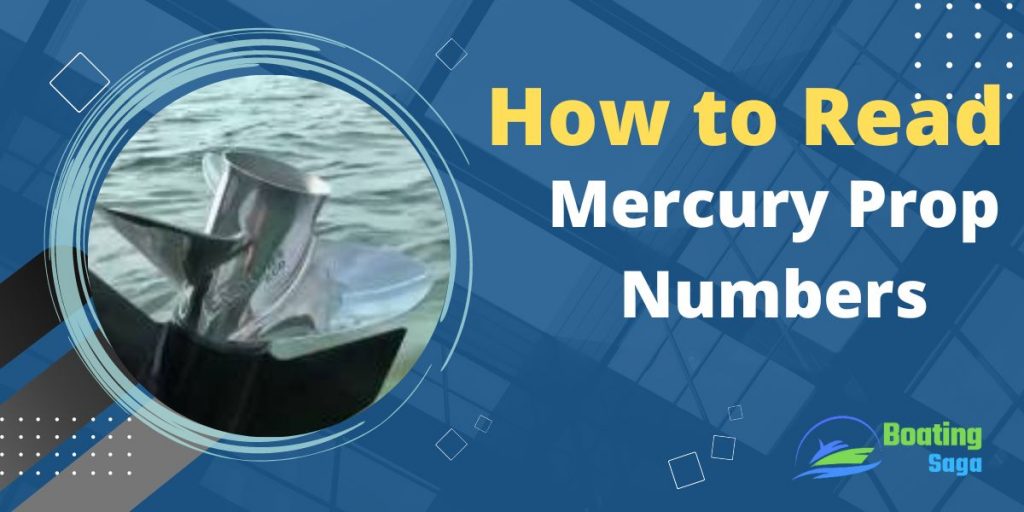
Most outboard mercury motors have a propeller size and pitch printed on the hub of the propeller. The number on the mercury prop following the “P” is the pitch, in inches. The number following the “X” is the diameter, also in inches. For example, on a 9.9 horsepower motor with a 3-blade prop, the prop size would be “9P13 X 13.”
The pitch is how far the propeller will travel forward in one revolution. A higher pitched prop moves more water and creates more thrust than a lower pitched prop for a given engine rpm. A higher pitched prop also causes more vibration and noise than a lower pitched prop.
The diameter is how wide the propeller is from blade tip to blade tip. Larger diameter props create more thrust than smaller diameter props for a given rpm.
Where Can You Find You Perfect and Right Prop for Your Boat?
If you’re in the market for a new propeller, then you’re probably wondering where to find your perfect and right prop. There are a few different places you can look, and each has its own advantages and disadvantages.
- One option is to go through a boat propeller manufacturer or dealer. This is a good option if you want a custom-made propeller that’s specifically tailored to your boat. It can also be more expensive than other options.
- Another option is to go through a retailer like West Marine. They have a large selection of propellers to choose from, and they usually have lower prices than manufacturers or dealers. However, the selection may not be as tailored to your specific needs.
- Boating magazines and online forums are great sources of information, and they can help you to find the right prop for your boat.
- The final option is to search online for aftermarket propellers.
Prop Selection Tips for Greater Performance
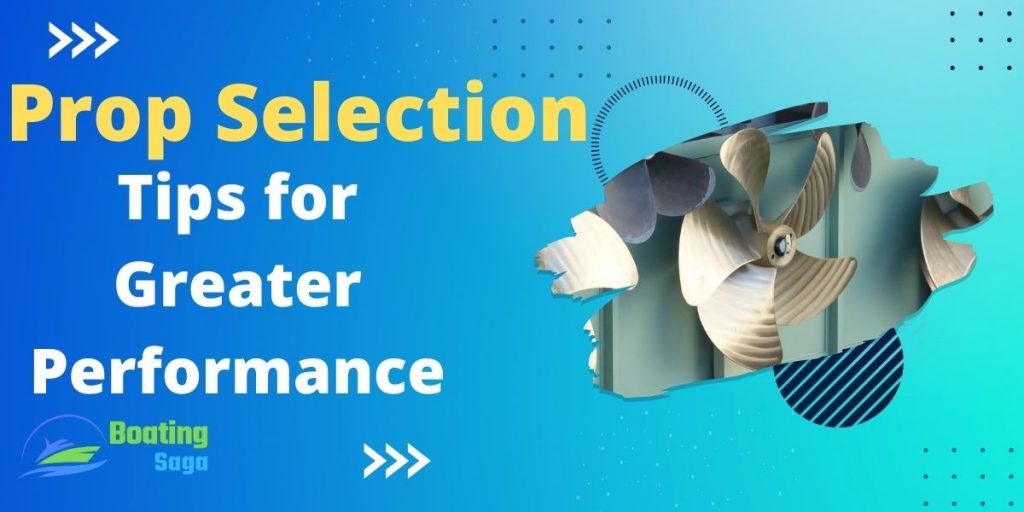
Choosing the right propeller for your boat is essential for great performance. Here are some tips to help you select the best prop for your vessel:
1. Know the weight of your boat and the horsepower of your engine. This will help you choose a prop that is compatible with your vessel.
2. Consider the type of water you will be using your boat in. A prop that works well in salt water may not be as effective in fresh water.
3. Make sure to select the correct prop for your boat’s size and weight. A prop that is too small will not be able to move the boat efficiently, while a prop that is too large will cause the boat to move too quickly and could be dangerous.
4. Look at the pitch of the propeller. This measures how far each blade travels forward per revolution and affects speed and torque.
5. Compare different props to find one that best suits your needs.
6. Think about how you plan to use your boat. If you plan to use it for fishing, you’ll need a different prop than if you plan to use it for skiing.
7. Consider your boat’s speed and cruising range requirements. There is no single prop that is perfect for every boat – you need to find one that meets the specific needs of your vessel. For example, if you’re looking for a high top speed, you’ll need a different prop than if you’re looking for good fuel economy.
Related Questions:
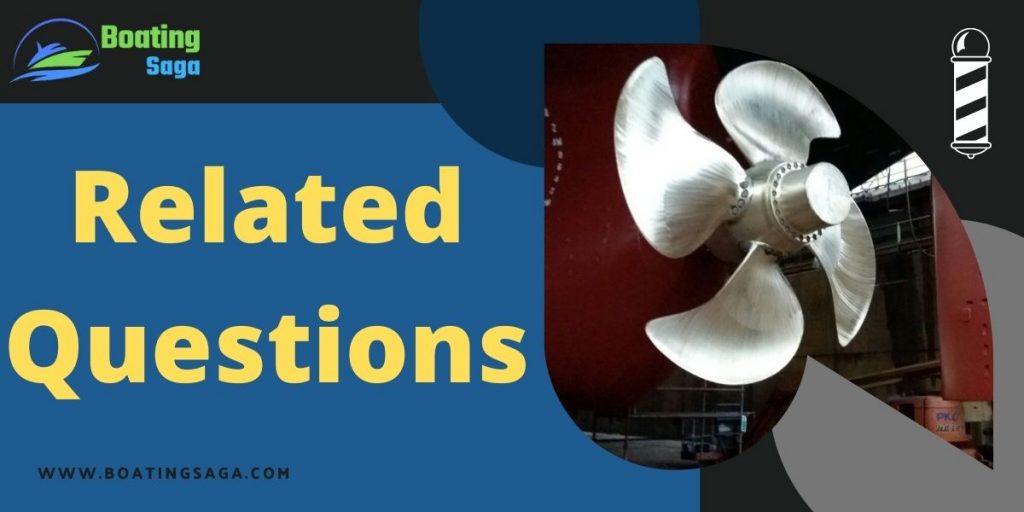
What Happens if Your Prop Has Too Much Pitch?
Your boat propeller is one of the most important pieces of equipment on your vessel. It provides the power that moves your boat through the water. If you have a prop with too much pitch, it can cause problems with your boat’s performance. Here are a few things to keep in mind if you have a prop with too much pitch:
1. You may experience difficulty getting your boat up to speed.
2. Your engine may struggle to move the boat at all.
3. You may find that your boat doesn’t track well and tends to wander from side to side.
4. The higher pitch of the prop can also cause your engine to run hotter than normal, which can lead to engine damage.
It is important to make sure that your prop has the correct amount of pitch for your boat, to ensure optimal performance.
Will a Higher Pitch Prop Increase My Boat Speed?
There are many variables to consider when it comes to boat speed. One such variable is the pitch of the propeller. A higher pitched propeller may increase boat speed, but this is not always the case. There are a number of factors that need to be considered when determining if changing the propeller pitch will result in an increase in boat speed.
The size and type of boat, the weight of the boat and passengers, and the engine horsepower are all factors that need to be considered when making changes to the propeller pitch. Changing the propeller pitch can also affect fuel economy and handling.
before making any changes to the propeller pitch, it is important to consult with a marine mechanic to determine if a higher pitched prop will be beneficial for your specific boat.
What Will Happen When Your Boat is Over Propped?
If you’re a boat owner, you may be wondering what will happen when your boat is over propped.
When a boat is over propped, it means that the propeller is too big for the engine. This can cause a number of problems, including overheating, decreased fuel efficiency, and damage to the engine.
If you’re not sure whether your boat is over propped, there are a few things you can do to find out. One thing you can do is check the size of your propeller compared to the size of your engine. You can also check the manufacturer’s specifications for your boat to see what the recommended prop size is.
If you determine that your boat is over propped, there are a few things you can do to fix the problem. One option is to downsize the propeller. Another option is to upgrade your engine.
Conclusion
Boat prop numbers are important to understand and consider when purchasing a boat propeller. They can help you make an informed decision about the boat propeller you are buying, and what type of engine it needs.
Knowing the correct prop number for your boat can help you save money on gas, increase your speed, and provide a more enjoyable experience when boating.
Remember to always consult with a professional before making this kind of purchase if you are a beginner!

